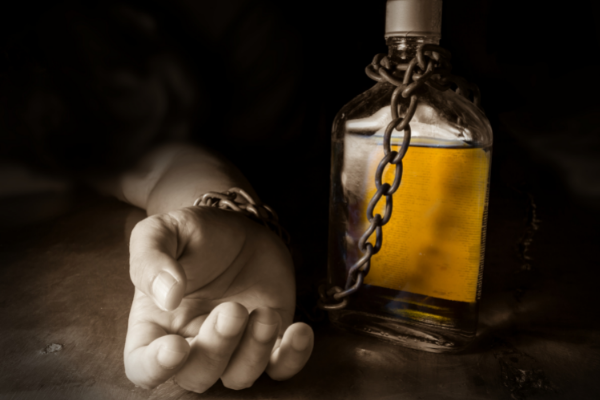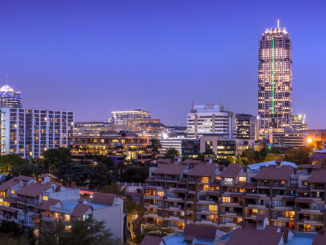

Founder Turnaround Talk
In response to the Covid-19 Pandemic, one of the first major decisions made by Government in March 2020 was placing the country in a State of Disaster. Under the Disaster Management Act, Government has the right to impose significant restrictions on the sale of alcohol and tobacco-based products.
If we look at this reasoning from a practical point of view, it makes sense. But – as always – there is a bit more happening behind the scenes which adds a bit of spice to the situation. During the initial stages of South Africa’s lockdown, there were significant rumours that Minister of Cooperative Governance and Traditional Affairs Nkosazana Dlamini-Zuma had a personal agenda when she refused to budge from her position around lifting the ban imposed on alcohol and tobacco products. There were rumours (which have not been proven) that this alleged agenda was being driven by the fact that Dlamini-Zuma was possibly benefitting from the illicit trade of these products. Once again, none of this has been proven.
The allegations against Dlamini-Zuma aside, there is no argument that the alcohol bans have increased the illicit trade in alcohol. Where there is a will, there is a way. The South African Liquor Brandowners Association (SALBA), in conjunction with the Beer Association of South Africa (BASA) and Vinpro, recently released a report detailing the growth of the sector.
Massive growth
The research report entitled Illicit Trade: Alcoholic Drinks in South Africa in 2020 indicates that illicit alcohol trade has grown at a compound annual growth rate (CAGR) of 17% since 2017 and now stands at 12% of the R177.2 billion total industry market value.
For context, in terms of volume, illicit trade made up 1 L in every 6,67 L traded in 2017. This has grown to 1 L in every 4,54 L.
Kurt Moore, CEO of SALBA, said, “this expansion of the illicit trade has had a devastating social impact on our citizens’ health and well-being, is stalling economic recovery and is fuelling the engines of organised crime.”
Patricia Pillay CEO of the Beer Association said, “The report confirmed a clear correlation between the sales ban and the increase in the demand for illicit alcohol. The illicit trade market has almost doubled in the last three years and, in 2020, is estimated to be worth R20.5 billion and comprises 22% of total alcohol consumption. The tragic indirect consequence of this has been the rise in illicit homebrew consumption-related deaths and an increase in criminal activities, which are now firmly entrenched.”

Photo By: Canva
Funding criminal enterprise
The growth in illicit trade indicates that the sales ban together with a lack of punitive measures and enforcement incentivised crime syndicates to ramp up smuggling and counterfeit operations to take advantage of the depressed legal market—with illicit products available even in high-end stores in Sandton—and further compounded the rise of illegal traders.
The illicit alcohol trade sales by volume have now overtaken the entire combined wine and cider sectors (665 431 hectolitres of alcohol equivalent vs 627 758 hectolitres of alcohol equivalent).
Rico Basson, Vinpro MD, said, “not only does this confirm what the alcohol industry has being communicating to government about the futility of banning legal sales but also confirms the World Health Organisation position that alcohol policy must take into account the national context. In our case, this is an existing rampant illicit market compounded by stringent regulations on the legal sale of alcohol, including alcohol excise taxes that are almost double what they were across all categories in 2012, combined with a weakening macro environment, where real disposable income contracted by 4.5% in 2020, and unemployment increasing to 29.2%, that have subsequently fuelled the market for cheap illicit products.”
Urgency is needed
Even before the recent rise in the illicit alcohol trade, there were rumours that Government is funding one of the biggest criminal enterprises in the world. This is not doing President Cyril Ramaphosa’s vision for the country any good.
South Africa needs to be seen as an investment destination once again. This cannot be done if we do not have stable electricity supply, job security and regulation that has no punitive measures for people who break the law. Government has created a rod for its own back and will now need to urgently address this issue if it wants to see high profile international investors visit our shores once again.
At 20:00 on 27 June, President Ramaphosa addressed the nation about the Third Wave of the Pandemic that we are currently experiencing. Another complete alcohol ban has been implemented which applies to both onsite consumption (bars, restaurants and taverns) as well as sales. This will no doubt see the illicit trade in alcohol gain massive momentum. What will the impacts of this be on the formalized alcohol industry?
Jonathan Faurie is the Founder of Turnaround Talk.




